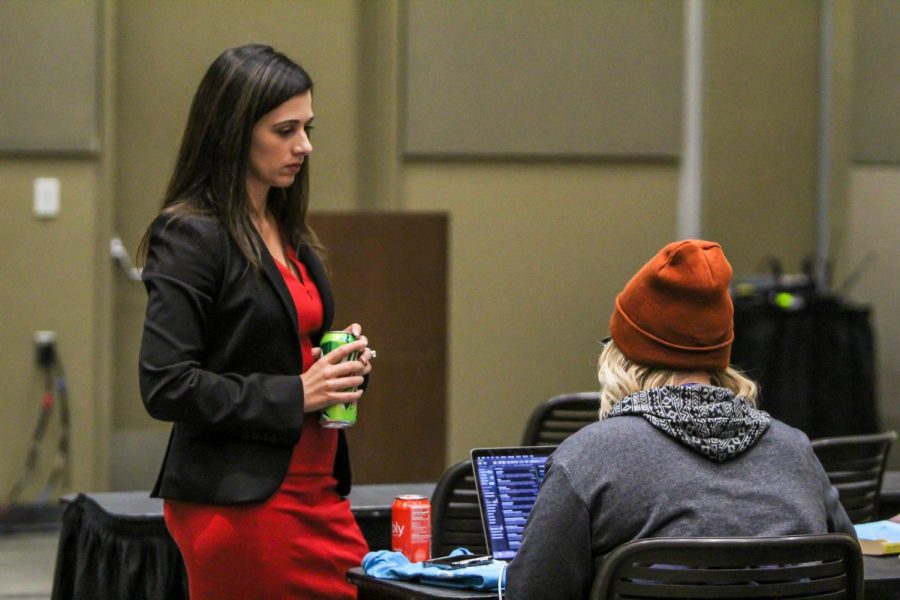GV alumna, journalists return for FOIA Fest
Nov 11, 2019
The second annual FOIA Fest was held Tuesday, Nov. 5 at the DeVos Center on Pew Campus. The event, which focuses on the Freedom of Information Act (FOIA), partnered with Big Data Ignite to expand beyond FOIA.
Grand Valley State University multimedia journalism professor Jeff Kelly Lowenstein said that the expansion of the event was exciting, since the first FOIA Fest was a two-hour workshop that brought in around 100 people. The 2019 event ranged throughout the entire day and involved more participants.
“We were downtown, and we were part of the (Big Data Ignite) conference, so there were about… 350 attendees for Big Data Ignite who could go to all of the FOIA Fest events,” Kelly Lowenstein said.
The event featured GVSU alumna and investigative reporter Marisa Kwiatkowski, who broke the Larry Nassar abuse scandal with her team at the Indy Star. GVSU Student Journalism Club officer Kayla Sosa introduced Kwiatkowski and briefly interviewed her before allowing student journalists to ask questions.
Kelly Lowenstein said his students enjoyed the hands-on session and Kwiatkowski’s attention to their questions.
FOIA Fest also featured State Senator Jeremy Moss, who discussed the FOIA legislation in Michigan, and a presentation on data visualization by Washington Post journalist John Muyskens.
The partnership between Big Data Ignite and FOIA Fest allowed the event to expand to data, Kelly Lowenstein said. Participants assisted in a hackathon to clean water datasets to help a GVSU-led water investigation team of 25 journalists spanning five continents.
Kelly Lowenstein said the partnership with Big Data Ignite made FOIA Fest more inclusive, with topics ranging from FOIA itself, laws surrounding it and analyzing data.
“It was more in the community of Grand Rapids, we had deeper partnerships and we had more students attend… So we just tried to grow the event,” Kelly Lowenstein said.
To support students’ investigative work, a FOIA fund is on the agenda for GVSU students, as agencies that comply with FOIA often establish fees for the request to be fulfilled. This can keep student journalists from investigating certain topics if fees are too high.
“Sometimes students’ fees that are assessed to fulfill the FOIA are just completely prohibited from the students,” Kelly Lowenstein said.



























